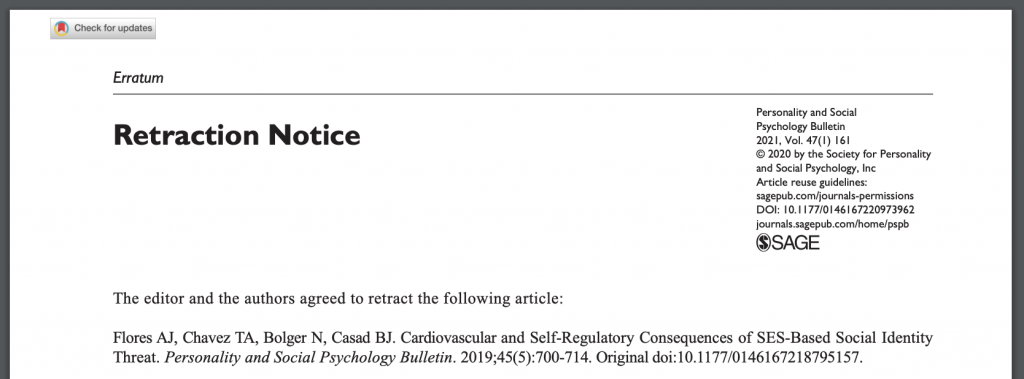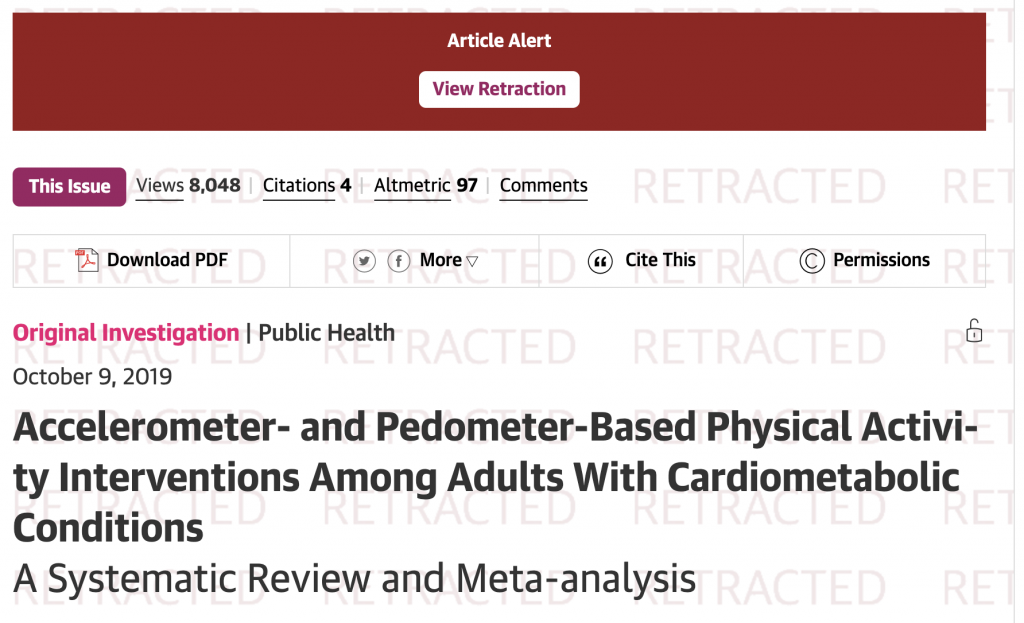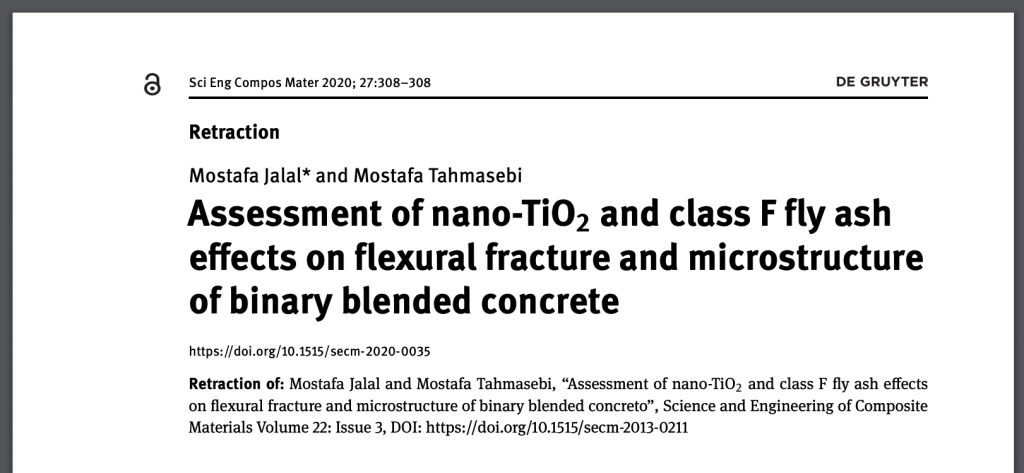
Personality and Social Psychology Bulletin has retracted a 2018 paper because, according to a retraction notice, the first author changed data in a way that “resulted in incorrect and misleading results.”
The article, “Cardiovascular and self-regulatory consequences of SES-based social identity threat,” claims to show that socioeconomic status-based “social identity threat can go from ‘in the air’ to ‘under the skin’ to influence physiological and self-regulatory processes.” It has been cited twice in addition to the retraction notice, according to Clarivate Analytics’ Web of Science.
Here’s the retraction notice:
Continue reading Columbia grad student faked data in study of socioeconomics and life experiences, says retraction notice




